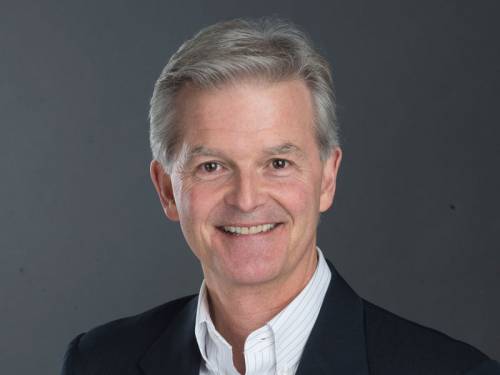Center on Reparative Justice, Transformation, and Remediation will be on McCormick’s Hyde Park campus
from McCormick Theological Seminary | Special to Presbyterian News Service

David Crawford is president of McCormick Theological Seminary.
CHICAGO — Together with the Samuel DeWitt Proctor Conference, McCormick Theological Seminary announces the formation of the Center for Reparative Justice, Transformation, and Remediation. According to a seminary news release, the Center will be located on McCormick’s campus in the Hyde Park neighborhood of Chicago.
The Center’s mission focuses on three areas:
- Public education, academic courses, scholarship and engagement on issues of reparative and restorative justice, racial remediation and systemic transformation
- Creation of leadership curricula related to the Center’s purpose for use in seminaries, churches and other institutions
- Participation in the creation and implementation of public policy and public theology related to the mission of the Center.
“In this moment, we must come to a reckoning with racism, a reckoning of our past with our promise,” said McCormick Theological Seminary President David Crawford. “Over the last 18 months, McCormick has been engaging conversations around reparations with our faculty, our board, and with community, church and thought leaders around the city and beyond.
“During that time we have engaged directly in the work of transforming our justice and carceral systems, and developed curricula that educates and activates leaders to prophetically engage policy and systemic transformation. This moment calls us all to commit ourselves to go beyond statements and symbolic gestures, meaningful as they may be.
“Through the work of the Center and the historic partnership with the Samuel DeWitt Proctor Conference, McCormick will engage the national and global conversations on reparations and justice and ensure a sustained and sustainable institutional commitment to addressing these issues.”

Dr. Iva Carruthers will be the Center’s founding executive director while continuing her role at the Samuel DeWitt Proctor Conference.
Dr. Iva Carruthers, General Secretary of the Samuel DeWitt Proctor Conference, said, “We are enthusiastic about partnering with McCormick Theological Seminary to launch this historic Center. It will serve to situate theology and ministry in the public discourse on reparations, reparatory justice and models of remedy to address centuries of foundational and systemic racism in America.”
Carruthers will serve as the Center’s founding executive director while continuing in her role as General Secretary of SDPC. Long engaged in the global reparations movement, she says, “With a global vision for justice, grounded in the prophetic tradition, we come with hope and determination to engage the challenging work ahead. Our Center is poised to uniquely contribute to the human rights movement for people of African descent and other groups subject to related injustices.”
The Samuel DeWitt Proctor Conference (SDPC) is a nonprofit organization and United Nations NGO (non-governmental organization) focused on advancing the mission to nurture, support and mobilize African American faith, civic, corporate and philanthropic leaders to address critical needs of human and social justice within local, national and global communities. Named to honor the late Rev. Dr. Samuel DeWitt Proctor — a global 20th century educator, theologian, and civic leader — the overarching organization’s goals are to strengthen the individual and collective capacity of thought leaders and activists in the academy, church and community through education, advocacy and activism. Founded in 2003, it is a respected network of ecumenical congregations, clergy and lay leaders that embodies the values of academic excellence, transgenerational engagement, and community outreach as evidence of faith and Christian witness.
Founded in 1829 and a leader in the Chicago faith community since 1860, McCormick Theological Seminary is a theological institution with a long history of high academic standards and a commitment to social justice and is one of the institutions associated with the Presbyterian Church (U.S.A.). Part of the Reformed tradition is an ecumenical commitment and openness to dialogue with different perspectives within the larger church. McCormick’s student body represents a wide variety of Christian traditions including Baptist, UCC, AME, Pentecostal, non-denominational students, and more. Common to all students is a desire to live in a racially, ethnically, linguistically, and theologically diverse community rooted in our faith and in a shared commitment to service for the common good.
![]() You may freely reuse and distribute this article in its entirety for non-commercial purposes in any medium. Please include author attribution, photography credits, and a link to the original article. This work is licensed under a Creative Commons Attribution-NonCommercial-NoDeratives 4.0 International License.
You may freely reuse and distribute this article in its entirety for non-commercial purposes in any medium. Please include author attribution, photography credits, and a link to the original article. This work is licensed under a Creative Commons Attribution-NonCommercial-NoDeratives 4.0 International License.